September 10, 2019
Could new innovative light recipes in indoor farms hold the key to feeding the world’s growing population?
Innovatus, a sustainable agricultural business in Fuji City, Japan, reached out to us. It had an interesting challenge it wanted help in solving. Namely, to produce high-quality, tasty, and pesticide-free lettuce in the most efficient way possible. In recent years, Japanese consumers have become increasingly concerned with food safety. People worry about pesticide-treated vegetables grown outdoors and the effects of fine particle pollutants that can be a serious health risk. To cater for the demand for clean, safe produce, Innovatus established a vertical farm with strict hygiene controls to produce truly safe vegetables.
We swung into action, responding with a mix of LED lighting expertise and technology. Our goal was simple: to increase the efficiency of one of the world’s largest closed-environment vertical farms - helping it to deliver 12,000 heads of lettuce every single day.
This new form of farming, within buildings located close to urban areas, is gaining momentum. Some believe it will become common place as the world’s population grows. According to the UN, the global population will hit 9.7 billion by 2050.
“We were really impressed by how well-suited the Philips LED modules are for vertical farming. They allow us to create consistent quality produce locally, using only a fraction of the water and electricity compared to open field lettuce or lettuce grown with the help of fluorescent lighting,” said cultivation management group team leader Shinichi Kitamura.
Consumers find the lettuce fresh and flavorful, especially compared to lettuce grown outside. Additionally, since the lettuce from Innovatus is grown and packaged in an extremely hygienic environment, there is no need for its consumers to wash it before eating and it lasts for two weeks.
“At Signify, we’re proud to be contributing to such projects because it reflects how we can solve social and environmental challenges using technologies that are more sustainable,” said Anton Brummelhuis, Senior Director Sustainability at Signify. “This project meets one of our eight sustainable focal areas. In this case, Basic Needs – in other words, how we contribute to the availability of fresh air, water, and food.
More efficient food production will be needed to support an additional two billion people on the planet through to 2050. New and smarter agricultural methods other than rural farming will be required to deliver food – at scale – to meet demand.
And that’s why Signify develops special lighting for vertical farming and high tech horticulture – to help feed this growing population in a more sustainable way.
We help optimize growth systems with LED lighting for crop cultivation all year round. Our tailor-made light recipes contribute to predictable growth, bigger harvests and higher quality plants.
Our GrowWise Center in Eindhoven, the Netherlands, is where much of the research into new light recipes takes place. There, scientists constantly look for improvements in crops such as taste, health benefits, texture and quality. By controlling parameters needed to grow plants, such as light, humidity, and irrigation, we help our customers get the most out of crops while saving space, energy and water.
“We use exactly the same photons as the sun, just optimized for the type of plant. We use water but we recycle it so use less. We keep out bugs and pests and optimize the plant for taste. We do this in a clean environment, all year-round. The result is reduced waste, food miles…and produce that is clean, healthy, and nutritious food, grown in a resource efficient way,” said Roel Janssen, Global Director City Farming
In Japan, a new large-scale vertical farm was built using the Philips GreenPower LED production module to grow high-quality lettuce varieties, spinach and coriander year-round.
Crops from the vertical farm don’t use pesticides and have a much lower bacterial count. The automated process from seeding to harvest takes only 39 days compared to 70 days in the open field, and production reaches up to 3,200 kg of lettuce a day. And the controlled environment gives the customer the opportunity to steer growth characteristics to improve shelf life, red coloration in lettuce, even vitamin C levels.
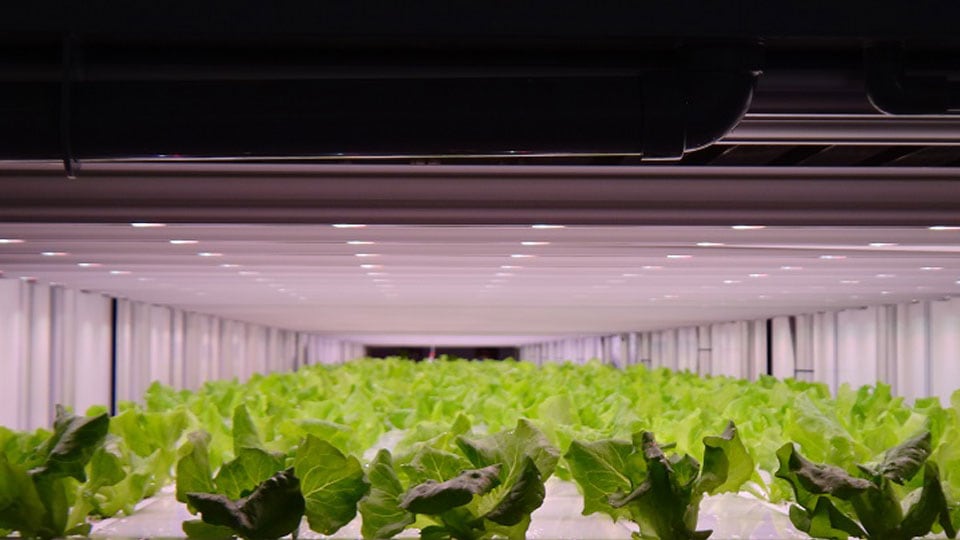
To help create a bright future for people and the planet, the UN established global goals for sustainable development. These interconnected goals aim to tackle the most pressing challenges we face as a global community including, but not limited to, climate, resource scarcity and poverty.
Vertical farming as a sustainable agricultural practice is important. Innovative solutions for urban agriculture, if scaled up, can be an answer for future food scarcity while developing sustainable food production patterns.
Sustainable agricultural practices are crucial if the world is to achieve the UN’s Sustainable Development Goals, such as goals 11 and 12, for sustainable and resilient cities and communities, and responsible production and consumption.
With our research, we develop climate-resilient technology and increase resource efficiency that contribute to the transition towards more sustainable and smarter cities, at the heart of SDG 11. And scaling up these solutions creates sustainable food production patterns, which in turn contribute to SDG12.
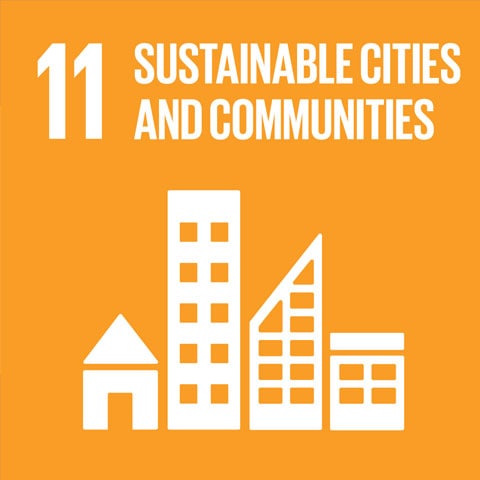
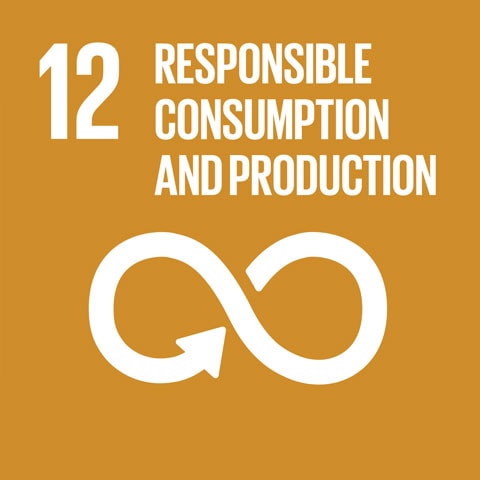
Anton Brummelhuis
Senior Director Sustainability at Signify
Signify (Euronext: LIGHT) is the world leader in lighting for professionals, consumers and the Internet of Things. Our Philips products, Interact systems and data-enabled services, deliver business value and transform life in homes, buildings and public spaces. In 2023, we had sales of EUR 6.7 billion, approximately 32,000 employees and a presence in over 70 countries. We unlock the extraordinary potential of light for brighter lives and a better world. We have been in the Dow Jones Sustainability World Index since our IPO for seven consecutive years and have achieved the EcoVadis Platinum rating for four consecutive years, placing Signify in the top one percent of companies assessed. News from Signify can be found in the Newsroom, on X, LinkedIn and Instagram. Information for investors is located on the Investor Relations page.
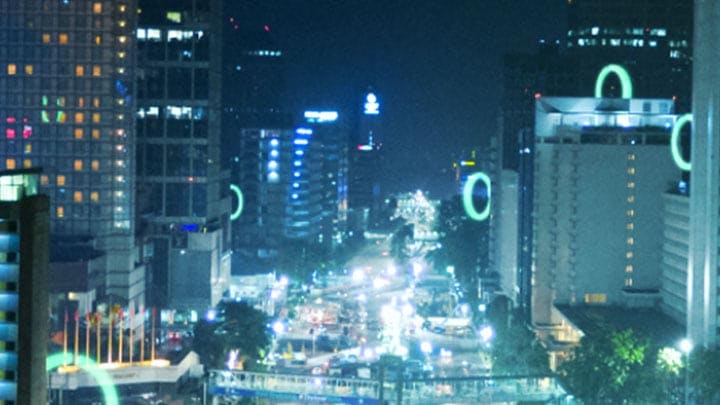
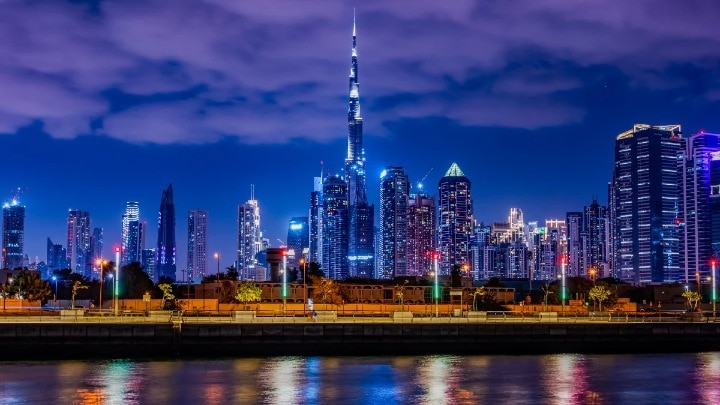
December 17, 2024
Transforming Dubai’s iconic buildings with connected lighting from Signify